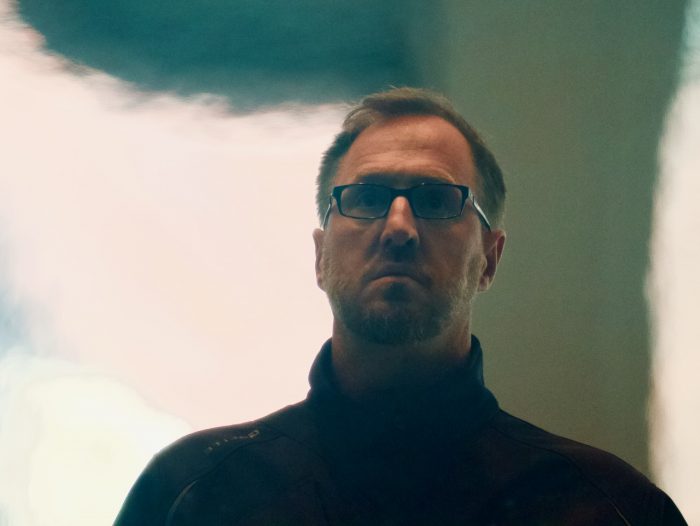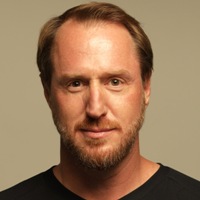Advice to my 30-year-old Self.
I’m looking in the mirror as I write a series of articles focused on giving advice to myself as a 30-year-old. The advice I’m giving is applicable to anyone at any age, male or female. I hope the Elephant Journal community enjoys this as much as I enjoyed writing about it. Here we go!
Know thyself.
Inscribed on the Temple of Apollo at Delphi is the Greek or Delphic maxim, “know thyself,” which the Greek philosopher, Socrates, later expounded upon by saying, “the unexamined life is not worth living.”
Jesus reiterated Socrates’ words when he said, “The kingdom of God is within you.” The Buddha, whose name means “consciousness” or “The Awakened One,” taught that all beings possess Buddha nature—or that the same wisdom or potential lies within us. And Gandhi said it beautifully, “Where there is love there is life,” starting with self-love.
What each of them had in common is the knowledge that truth resides within, and once we know our truth we can begin to live in higher consciousness. If anyone needs a quick primer on higher consciousness, read this article that I wrote previously.
By the age of 30, the Ancient Greek aphorism, “know thyself,” should be front and center in our lives. The reason is simple: if we do not know ourselves at the deepest level and in the most honest way possible, every decision that we make moving forward will be based on illusions and false assumptions that will inevitably have to be confronted later in life.
When we lack an understanding of who we are, what we want, and why we want it, it affects our love life, friendships, spiritual growth, career, and all of our experiences. For this reason, I begin with this—know thyself—to ensure that we are making decisions from a place of truth and a deeper knowing, as it is central to success in every other facet of our lives.
For me, my course correction came after nearly dying of a rare blood cancer, which led me to write “How a Visit from Death Saved my Life.” It shouldn’t take such a dramatic event for any of us to get it, but for slow learners like me, it did. Consider this article an introduction to begin the real work of getting to know oneself.
Having taught at various universities for nearly two decades, I have continuously witnessed that people are generally focused on the external world, over exploring and discovering themselves first. When I ask students why they’re in my class, I often hear them tell me that they want to make a difference, an impact, do good, solve our environmental crisis or other social problems by coming up with entrepreneurial or non-profit solutions to the challenges.
Yet, when I have students write their dream biographies, they often contradict this verbal sentiment and write about being rich (materially focused) or famous (ego-focused) without explaining what or how they did what they did to become rich or famous.
Regardless of what they say or write, I then ask: why? Unfortunately, few know the answer to that question. The reason that they do not know the answer is because they sometimes do not know the truth behind their decisions. The same goes for some adults and professionals that I advise and consult.
When we ask the question “why?” people are often stumped, look confounded, or start scrambling for words to try to explain themselves, while using any available means to rationalize or justify their responses. If we have to rationalize or justify ourselves, it’s not our truth. If we have to convince anyone of anything that we are doing, it’s not our truth.
We gravitate toward making externally focused choices because we are conditioned to believe that we are here to serve the world at the expense of ourselves. How many times, in one form or another, have we heard that we have to sacrifice ourselves for our family, country, or the world?
Unfortunately, we can’t be present for anyone or anything, nor can we effect change in any real way if it is not rooted in our internal truth. Paradoxically, our culture also emphasizes egoism and hyper-individualism, often in the form of the idea that “I alone can save the world,” which isn’t true either.
The problem with being externally focused versus internally grounded is that it’s often associated with conditioned truths—or things that we think are true for us, but are actually familial, societal, and culturally taught ways of being. And, being externally oriented can feel good when we’re rewarded with love, money, friendship, or something else outside of ourselves that leads us to believe that we have worth, apart from the inherent value that we already possess.
In sum, we comply with what the world wants from us over what we may actually want or need for ourselves, because it leads us toward feeling validated. The only real way to be validated is to do it for ourselves by anchoring into our internal truth so that we aren’t serving with resentment, or at the expense of our truth. If we don’t, we’re bound to have a course correction at some point in life. So, we must begin the process of getting to know ourselves as soon as possible, which isn’t easy.
Unfortunately, this important life lesson isn’t actually taught in the majority of schools or universities, and the prospects for it being emphasized in the future are low given increased emphasis on Science, Technology, Engineering, and Mathematics (STEM) at the expense of the Arts and Humanities in our education system. However, people are craving it, especially young adults and professionals. This is why the course, “Happiness,” is Yale University’s most popular class ever, in the classroom and online.
Naturally, the question arises: how do we know what’s true for ourselves, versus what family, friends, or the world at large expects from us? In an upcoming article, I’ll answer this question and give us some exercises to further discover our inner truth.
For now, our task is to make a list of everything that we’re currently doing in our lives using these categories: love, career, friendship, spirituality, and life experiences. Next to each item we’ve written for each category (as many or as little as we like), ask this question: why am I doing this? Write the most honest answer you can come up with; it’s bound to be extremely uncomfortable if we’re honest with ourselves, but it’s the first step toward truth. Be brutally honest with yourself when doing this exercise to get the most value from it.
~


 Share on bsky
Share on bsky





Read 7 comments and reply